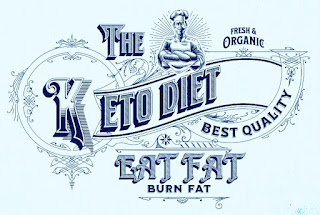The Link Between Keto Diet and Fatty Liver Disease: What You Should Know
Question always arises about the benefits and risks of different diets, including the popular ketogenic or "keto" diet. While this high-fat, low-carbohydrate diet can be effective for weight loss and blood sugar control, there are potential risks to consider, including the link between the keto diet and fatty liver disease.
Fatty liver disease is a condition where fat accumulates in the liver cells, which can lead to inflammation and damage. There are two types of fatty liver disease: non-alcoholic fatty liver disease
(NAFLD) and alcoholic fatty liver disease (AFLD). NAFLD is the most common type and is often associated with obesity and metabolic syndrome, both of which can be addressed with a healthy diet and lifestyle changes.
While the keto diet may initially result in weight loss and improved metabolic markers, research suggests that it may also increase the risk of NAFLD. This is because the high intake of saturated and unsaturated fats can increase fat accumulation in the liver. Additionally, the keto diet can lead to an increase in uric acid levels, which has been linked to the development of NAFLD.
However, it is important to note that not all studies have found a significant link between the keto diet and fatty liver disease. Some studies have even found that the keto diet can improve liver function and reduce inflammation in those with NAFLD. These conflicting findings may be due to differences in study design, duration, and participant characteristics.
So, what should you do if you are considering the keto diet but are worried about the potential link to fatty liver disease? The nutritionist always advice to focus on a balanced and sustainable approach to eating. This includes consuming a variety of whole foods, including fruits, vegetables, lean proteins, and healthy fats like those found in nuts, seeds, and fatty fish. It is also important to limit or avoid processed foods, added sugars, and unhealthy fats.
If you do decide to try the keto diet, it is crucial to work with a healthcare professional, such as a registered dietitian, to ensure that you are meeting your nutrient needs and monitoring any potential risks, including fatty liver disease. It is also important to remember that the keto diet is not a one-size-fits-all approach and may not be appropriate for everyone.
In conclusion, while the keto diet can be an effective tool for weight loss and blood sugar control, it is important to consider the potential risks, including the link to fatty liver disease. Nutritionist always recommend focusing on a balanced and sustainable approach to eating and working with a healthcare professional to monitor your health and well-being.
.jpg)



Comments
Post a Comment